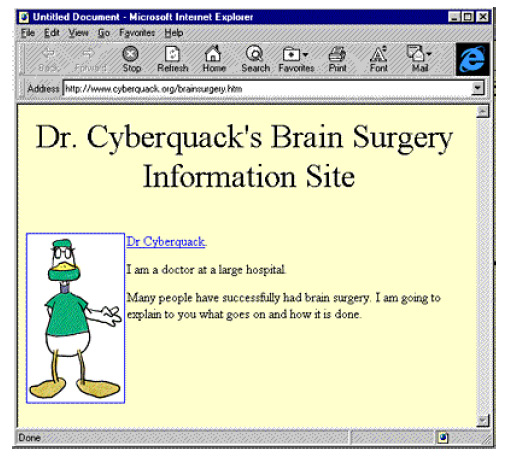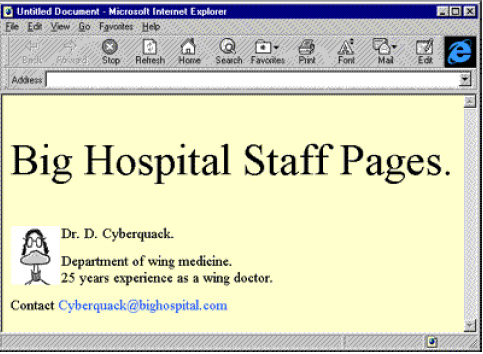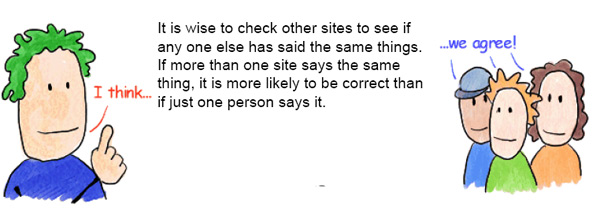 KEY STAGE THREE
KEY STAGE THREE  Information
Information  Checkpoint 5:
Checkpoint 5:
Can the information be checked?
When you look at a web site it is very easy to believe that because there is lots of information and that it sounds or looks good, that it is also correct.
Unfortunately this is not always the case.
Unlike TV programmes and magazines, the internet does NOT have a group of people to check that the information being provided is correct.
So you must check that the information is correct for yourself.
A web site that aims to give you correct information should always provide you with ways to check this.
The site may list books or magazines that have been written on the subject or it may give you links to other web sites that agree with whatever is being said.
 You must always check:
You must always check:
1. That the author is who they say they are
2. If anyone else says the same thing
3. If you have all the information
1. Is the author who they say they are?
Here is a doctor's information page:

If you checked to see who he was you would find that he is a doctor at a big hospital. You may think that this was OK.
But if you clicked on his name to see his page on the hospitals main web
site you might find the following information:

As you can see, Dr. Cyberquack is indeed a doctor and does work at a big hospital. But he specialises in wings and NOT brains! He is not qualified to talk about brain surgery.
2. Does anyone else say the same things?

3. Do you have all the information?
I f the information is backed up by a list of books and magazines then you will need to check them.
f the information is backed up by a list of books and magazines then you will need to check them.
Make a note of:
- who the article is written by
- the title
- who has published it
- the date when it was published
If the information is in the form of links to other web sites, you should follow them and check carefully the information on these sites too.
Is the same information really provided?
Or are the writers just trying to impress you by linking to an organisation you are more likely to have heard of?
Copyright © www.teach-ict.com



